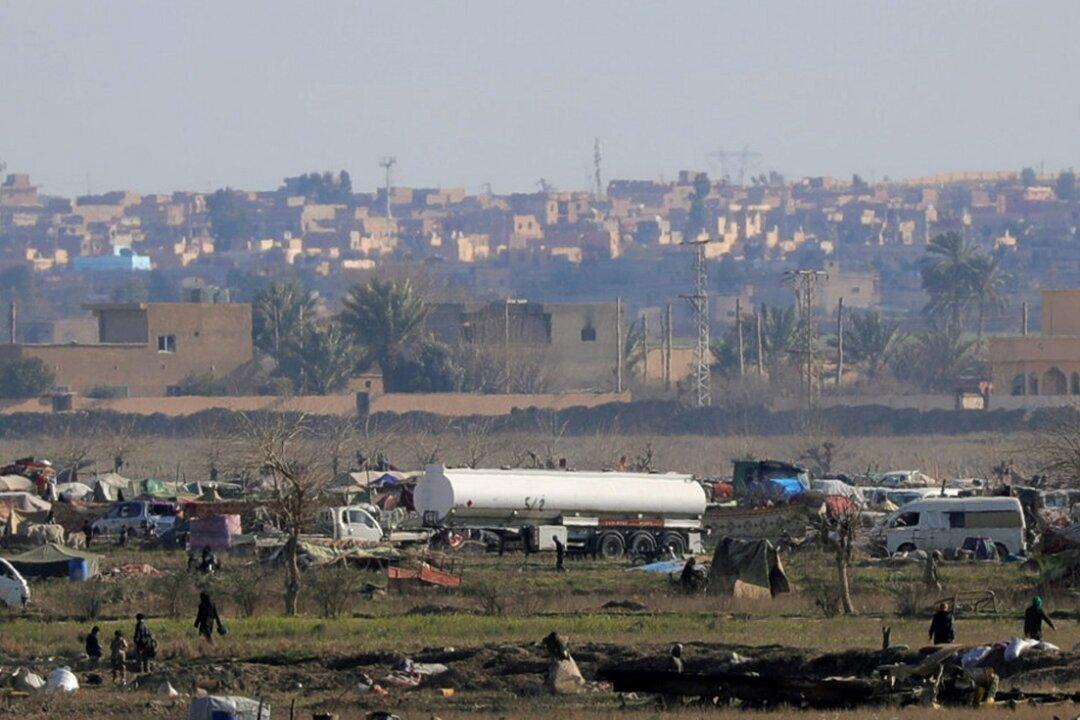NEAR BAGHOUZ, Syria-Heading to a camp for displaced people as ISIS’s territorial “caliphate” in Iraq and Syria faces final defeat, Ghalia Ali shows no regret about abandoning her life as a student in Tunisia to join the militants in 2014.
The young Tunisian-French woman was among truckloads of civilians leaving the militants’ last enclave in eastern Syria.





